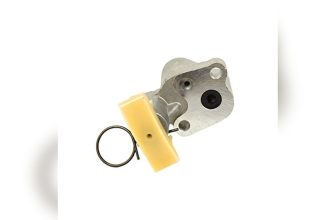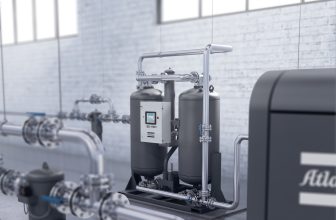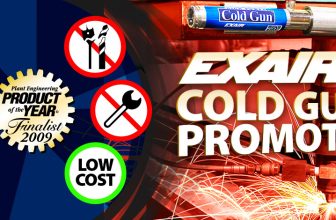
Compressed air is often called “the fourth utility” in industrial operations, and like the other three utilities — water, electricity and gas — wasting air can have expensive consequences.
The damage done by compressed air leaks is often misunderstood and underestimated. What may seem like a simple bit of air escaping can lead to thousands of dollars each year in energy costs, reduced equipment efficiency, maintenance issues and production downtime. Surprisingly, even as most companies are striving to improve the sustainability of their operations and reduce emissions, air compressor leaks are one of the most overlooked sources of energy waste.
The U.S. Department of Energy estimates that 20%-30% of a facility’s compressed air is lost to leaks. This creates a chain reaction of nintended consequences that can affect a
company’s operations. Facilities with air compression leaks will see:
- Pressure drops that reduce equipment efficiency and cause machines to underperform
- Shortened compressor lifespans due to the excess cycling of compressor components
- Higher maintenance costs
- Increased repairs
- Production downtime due to equipment issues
Leaks can drain thousands of dollars per year, especially as energy prices rise. Here’s what a facility could be looking at depending on the size of the leak, based on calculations from the U.S. D.O.E’s compressed air resources, with updated 2025 electricity rates:
- 1/64-inch leak → ~$58/year
- 1/32-inch leak → ~$244/year
- 1/16-inch leak → ~$985/year
- 1/4-inch leak → ~$15,700/year
Digging deep to find leaks
Leak detection should be part of a facility’s routine maintenance operations — and not only reserved for when problems arise. Identifying and fixing leaks before they worsen leads to long-term savings and optimized operations. Michigan Air Solutions approaches leaks not only as isolated issues but as deeper system inefficiencies. We work with companies to uncover leaks during routine service visits. We also assess the health of the entire compressed air systems. Our ELGi-certified technical field specialists are trained to spot energy-wasting issues. This can be accomplished through troubleshooting or undertaking what is called an “air audit”.
Air audits done the right way
Michigan Air Solutions performs air audits to help customers identify problems, quantify losses and help plan repairs or upgrades. Technicians utilize a variety of methods in these air audits:
- Leak detection utilizes visual inspections and ultrasonic tools to detect leaks throughout the system, such as through hoses, fittings, valves, drains, etc. It also
includes soapy water testing to quickly and effectively confirm leaks around fittings and hoses. - Pressure and flow logging make use of temporary or permanent sensors to log real-time system behavior. The goal is to identify fluctuations, patterns and possible
leaks through demand and loss anomalies. - System mapping entails technicians documenting air compression systems and how they operate. This could include compressor layouts, piping routes and
accessory components to discover air bottlenecks for inefficiencies. - Usage profiling evaluates when and how compressed air is consumed, such as during peak shifts, high-demand processes or duty-cycle operations. Technicians
work to detect oversizing or pressure setpoint issues. - Accessory and piping reviews look at filters, dryers, receivers, drains, regulators and more to ensure they are sized correctly, working efficiently and maintaining
pressure. - Compressor performance reviews look specifically at a facility’s air compressor units and study their cycling frequencies, load/unload behaviors and energy use relative to output.
Stopping leaks the MAS way
It’s important to consistently monitor for leaks in compressed air systems. They are rarely a one-and-done problem. Companies should work with air compressor partners to assess total system health.
Whether it be manufacturing, food and beverage, pharmaceutical or other plant operations, many industries face knowledge gaps when it comes to air compression because of employee turnover or a lack of resources. They can rely on a partner like Michigan Air Solutions to maintain this knowledge and ensure their systems run smoothly.
A proactive air compression partner can help companies purchase the air compressor equipment, helping them decide what type of compressor (such as oil-free or oil-flooded), its proper size (CFM and PSI), a proper system to support it (valves, hoses, drains, filters, fittings), and of course, the ability to keep it effectively running over the long term. Don’t let leaks drain your budget. Partner with an air compression expert to ensure your plant remains as efficient, productive and sustainable as possible.





